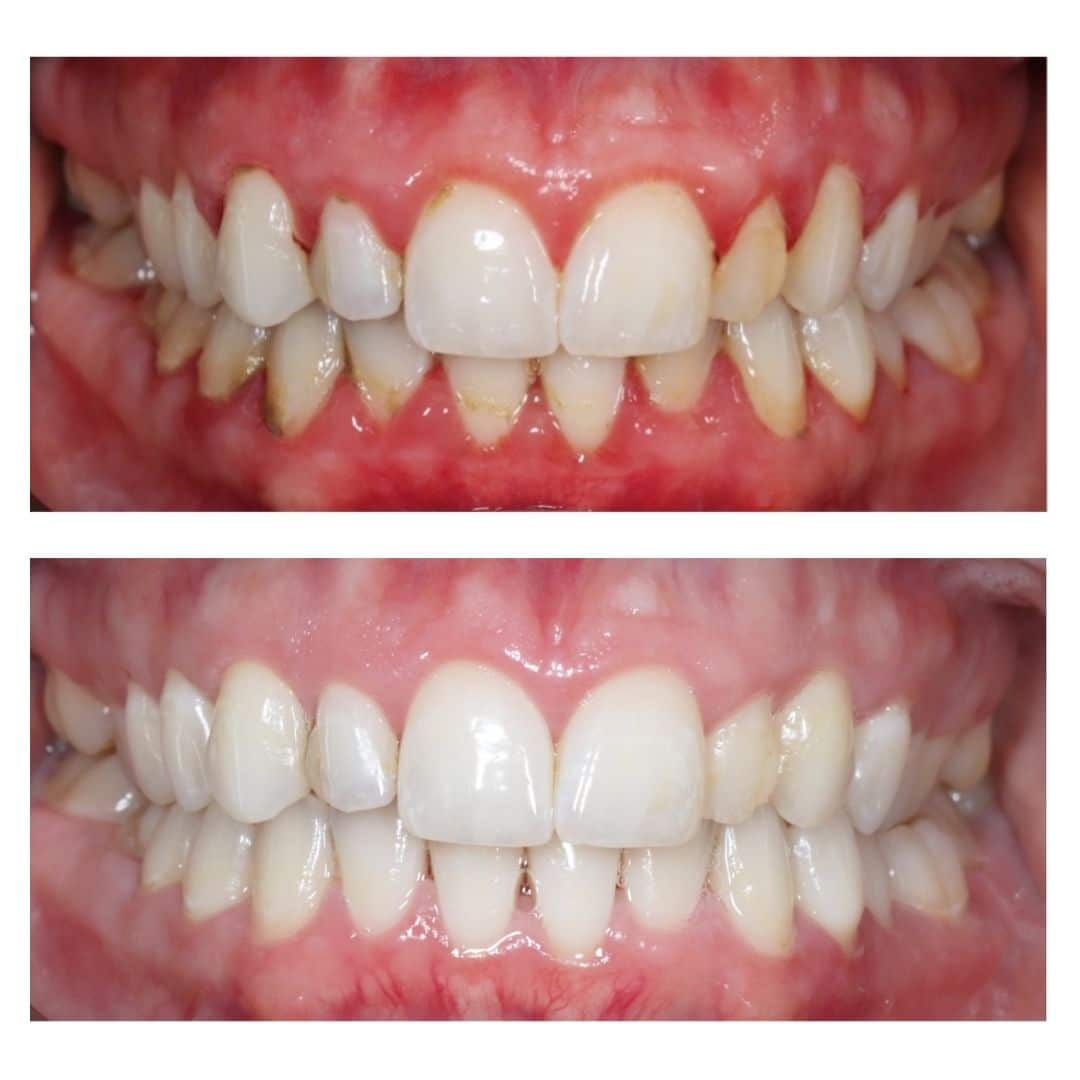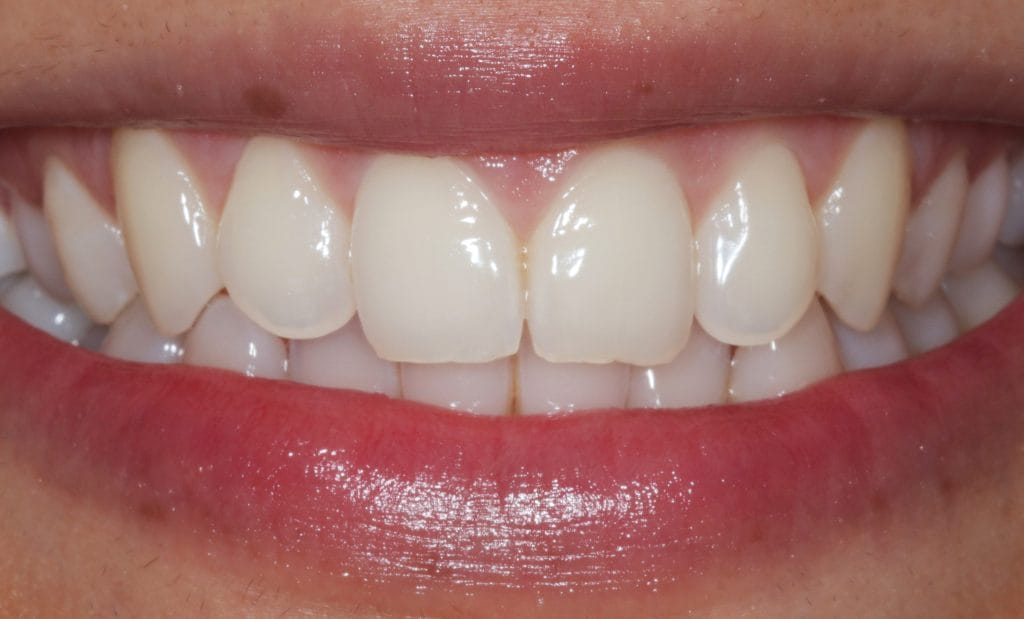Gum Disease and Prevention – RW Perio | How to Improve Your Dental Health
10 January 2023

Have you had a check-up recently?
In London, 55.7% of people have not seen a dentist in the last 24 months. The highest figure in the country. Skipping those crucial dental check-ups during the pandemic has had a huge knock-on effect on us all—one that can lead to more than just a toothache. Let’s delve into gum disease…
What is gum disease?
Gum disease, also known as gingivitis or periodontitis, is a common condition where the gums become swollen, sore, or infected.
If you are suffering from gingivitis, your gums may appear red and swollen and will bleed, particularly during brushing or flossing. This is due to inflammation along the gumline. The individual may also experience a bad taste or persistent mouth odour for a prolonged period of time. Frequent white spots or large amounts of plaque on the gums are also tell-tale signs of gum disease.
How does it occur?
There are multiple stages of gum disease. In simple terms, it is an infection of the tissues that hold your teeth in place. This is typically a result of poor or a lack of brushing of the teeth and a lack of interdental cleaning/flossing that creates plaque buildup on your teeth that hardens.
Gingivitis: This is the reversible stage of Gum disease, where the swelling and redness begin. Only the gums are involved.
Periodontitis: This derives from the word periodontal, which means “around the tooth” and refers to the structures that surround and support teeth. The second stage involves the bone around the tooth. You lose bone and pockets open up between your gum and tooth.
Other complications include a bad taste, mobile teeth and receding gums.
Who Does It Affect?
Gum disease has the potential to affect anyone of all ages.
Several risk factors that can increase the chances of periodontal diseases include smoking, poor oral hygiene, diabetes, medication, age, hereditary links, and stress.
According to BUPA, it has been concluded that over 90% of adults in the UK have some form of gum disease, even if only a small amount.
What Do Healthy Gums Look Like?
Healthy gums will appear pink and firm. They will not bleed when you brush or floss, nor will they feel sensitive or swollen when brushing, flossing or eating certain foods.

Natural Ways to Prevent Gum Disease
The good news is that it can be prevented!
- Brush your teeth twice a day and ensure to clean between your teeth too.
- Consider using an electric toothbrush to maximise your cleaning.
- Clean between your teeth using interdental brushes or floss daily.
- Visit your dentist regularly for a check-up and any maintenance as needed.
What are the benefits of treating periodontal disease?
It starts with Gum Disease, but it can get a lot worse if you don’t follow up with proper, effective treatment. Gum Disease has proven to be linked to dangerous health problems in other parts of your body and can increase your risk of
If treated correctly, the corresponding reductions in hospital admissions are:
- 39% in diabetes patients
- 29% in heart disease patients
- 21% in stroke patients
What Treatments Do We Offer?
Here is a list of the relevant consultations and treatments that we offer to help you fight Gum Disease:
Periodontal Consultation
The first appointment will always be a periodontal consultation. This will involve a comprehensive discussion to ensure we are aware of your personal concerns and aims of treatment. This will be followed by a detailed periodontal examination, which involves measuring the position of the gums and determining whether or not spaces (pockets) have opened up between the gums and the teeth.
Non-Surgical Periodontal Therapy
If you have been diagnosed with periodontitis, then treatment will usually begin with non-surgical periodontal therapy. Treatment will only work with good home care and so an important part of this treatment is us giving you tailored oral hygiene instructions. The bacteria and ‘build-up’ under the gum line and within the pocket are then removed through a technique called root surface debridement. This is usually carried out under local anaesthetic to ensure you are comfortable throughout the process. The aims of this treatment are to reduce the depth of the pockets and increase the ability to maintain good oral hygiene in the area.
Pocket Reduction Surgery
If the pockets are not reduced with non-surgical periodontal therapy then surgery may be suggested. This will involve reshaping the gums and bone. Sometimes, bone regenerative materials (synthetic/human/animal derived) may be placed around the teeth.
Gum Recession
Several methods are available to treat gum recession and to reverse it in most cases. At RW Perio, we perform gum grafts, which require pulling the gum down over the receded area and/or taking a small piece of tissue from the roof of your mouth. The graft will improve not only the appearance of the gums but also the thickness.
How Can I Make My Gums Healthy Again?
Creating a routine for oral hygiene that you can follow every morning and night is the first step. In order to keep your gums healthy, consistency is key. Follow the steps above to maintain healthy gums, stick to your routine religiously and try to cut down on sugary foods and drink as much as possible.
We want you to feel confidence in your smile.
Want to take the next step with us?
RW Perio is a specialist private practice dedicated to the treatment of periodontal (gum) diseases, in a comfortable and caring environment. As a leading periodontist in London, our aim is to assist every patient to achieve and maintain optimal gum health.
If you have any concerns about your oral health, you can book an appointment with us or give us a call at our specialist clinic located on 75 Harley Street.
Get in touch with us today or Try Our Online Gum Health Check now!
Ready to read more? Take a look at our other blogs if you are interested in learning further about dental care.
Follow us on our socials to stay up to date with the latest news and posts:



